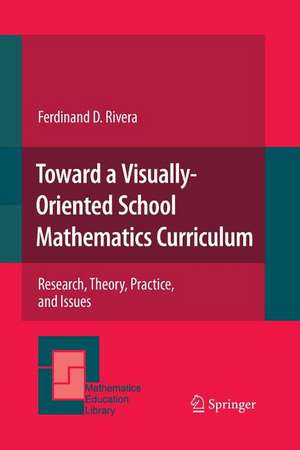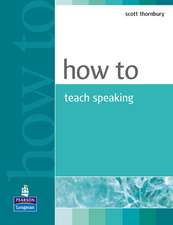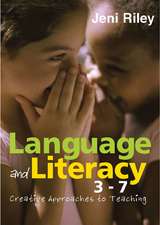Toward a Visually-Oriented School Mathematics Curriculum: Research, Theory, Practice, and Issues: Mathematics Education Library, cartea 49
Autor Ferdinand Riveraen Limba Engleză Paperback – 27 ian 2013
| Toate formatele și edițiile | Preț | Express |
|---|---|---|
| Paperback (1) | 641.85 lei 6-8 săpt. | |
| SPRINGER NETHERLANDS – 27 ian 2013 | 641.85 lei 6-8 săpt. | |
| Hardback (1) | 649.06 lei 6-8 săpt. | |
| SPRINGER NETHERLANDS – 23 dec 2010 | 649.06 lei 6-8 săpt. |
Din seria Mathematics Education Library
-
 Preț: 389.70 lei
Preț: 389.70 lei - 15%
 Preț: 645.96 lei
Preț: 645.96 lei - 18%
 Preț: 742.97 lei
Preț: 742.97 lei - 18%
 Preț: 1394.84 lei
Preț: 1394.84 lei - 18%
 Preț: 942.10 lei
Preț: 942.10 lei - 18%
 Preț: 1544.80 lei
Preț: 1544.80 lei - 15%
 Preț: 652.49 lei
Preț: 652.49 lei - 18%
 Preț: 1325.82 lei
Preț: 1325.82 lei - 18%
 Preț: 1225.48 lei
Preț: 1225.48 lei - 15%
 Preț: 643.34 lei
Preț: 643.34 lei - 18%
 Preț: 1221.07 lei
Preț: 1221.07 lei - 18%
 Preț: 952.89 lei
Preț: 952.89 lei - 18%
 Preț: 950.52 lei
Preț: 950.52 lei - 24%
 Preț: 1445.43 lei
Preț: 1445.43 lei - 18%
 Preț: 1224.54 lei
Preț: 1224.54 lei - 15%
 Preț: 651.19 lei
Preț: 651.19 lei -
 Preț: 391.61 lei
Preț: 391.61 lei - 18%
 Preț: 948.16 lei
Preț: 948.16 lei - 18%
 Preț: 944.19 lei
Preț: 944.19 lei - 18%
 Preț: 1380.95 lei
Preț: 1380.95 lei - 18%
 Preț: 947.85 lei
Preț: 947.85 lei - 18%
 Preț: 948.61 lei
Preț: 948.61 lei - 15%
 Preț: 635.31 lei
Preț: 635.31 lei - 15%
 Preț: 644.63 lei
Preț: 644.63 lei - 15%
 Preț: 646.43 lei
Preț: 646.43 lei - 15%
 Preț: 647.59 lei
Preț: 647.59 lei
Preț: 641.85 lei
Preț vechi: 755.13 lei
-15% Nou
Puncte Express: 963
Preț estimativ în valută:
122.86€ • 133.49$ • 103.27£
122.86€ • 133.49$ • 103.27£
Carte tipărită la comandă
Livrare economică 21 aprilie-05 mai
Preluare comenzi: 021 569.72.76
Specificații
ISBN-13: 9789400734708
ISBN-10: 9400734700
Pagini: 328
Ilustrații: IX, 316 p.
Dimensiuni: 155 x 235 x 17 mm
Greutate: 0.46 kg
Ediția:2011
Editura: SPRINGER NETHERLANDS
Colecția Springer
Seria Mathematics Education Library
Locul publicării:Dordrecht, Netherlands
ISBN-10: 9400734700
Pagini: 328
Ilustrații: IX, 316 p.
Dimensiuni: 155 x 235 x 17 mm
Greutate: 0.46 kg
Ediția:2011
Editura: SPRINGER NETHERLANDS
Colecția Springer
Seria Mathematics Education Library
Locul publicării:Dordrecht, Netherlands
Public țintă
ResearchCuprins
Chapter 1. Visualization and Progressive Schematization.- Chapter 2. Visual Roots of Mathematical Cognitive Activity.- Chapter 3. Visual Roots of Mathematical Symbols.- Chapter 4. Visuoalphanumeric Representations in Pattern Generalization Activity.- Chapter 5. Visual Thinking and Diagrammatic Reasoning (DR).- Chapter 6. Cultural and Blind-Specific Issues and Implications to Visual Thinking in Mathematics.- Chapter 7. Instructional Implications: Toward Visual Thinking in Mathematics.
Textul de pe ultima copertă
What does it mean to have a visual representation of a mathematical object, concept, or process? What visualization strategies support growth in mathematical thinking, reasoning, generalization, and knowledge? Is mathematical seeing culture-free? How can information drawn from studies in blind subjects help us understand the significance of a multimodal approach to learning mathematics? Toward a Visually-Oriented School Mathematics Curriculum explores a unified theory of visualization in school mathematical learning via the notion of progressive modeling. Based on the author’s longitudinal research investigations in elementary and middle school classrooms, the book provides a compelling empirical account of ways in which instruction can effectively orchestrate the transition from personally-constructed visuals, both externally-drawn and internally-derived, into more structured visual representations within the context of a socioculturally grounded mathematical activity. Both for teachers and researchers, a discussion of this topic is relevant in the history of the present. The ubiquity of technological tools and virtual spaces for learning and doing mathematics has aroused interest among concerned stakeholders about the role of mathematics in these contexts. The book begins with a prolegomenon on the author’s reflections on past and present visual studies in mathematics education. In the remaining seven chapters, visualization is pursued in terms of its role in bringing about progressions in mathematical symbolization, abduction, pattern generalization, and diagrammatization. Toward a Visually-Oriented School Mathematics Curriculum views issues surrounding visualization through the eyes of a classroom teacher-researcher; it draws on findings within and outside of mathematics education that help practitioners and scholars gain a better understanding of what it means to pleasurably experience the symmetric visual/symbolic reversal phenomenon – thatis, seeing the visual in the symbolic and the symbolic in the visual."
Caracteristici
Connects relevant research on visualization and school mathematics education to research on visualization and cognition, in general. Provides a systematic analysis of the role of visualization in each of the following important aspects in mathematics: symbolization, generalization, and reasoning. Provides critical information on how to develop a visual-oriented mathematics curriculum, instruction and learning.









